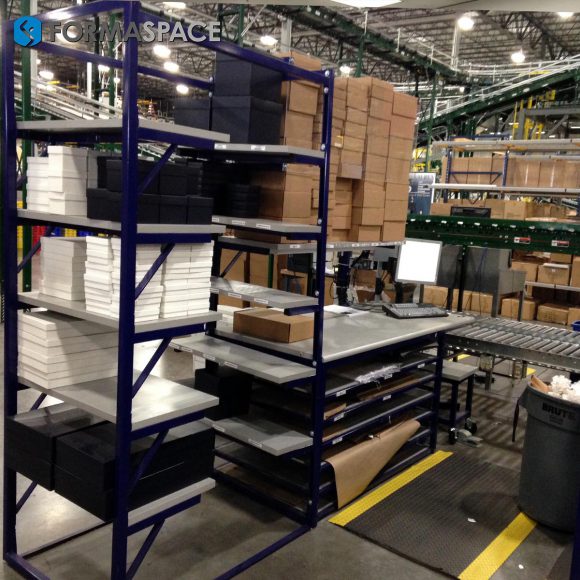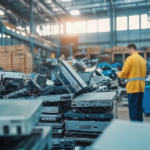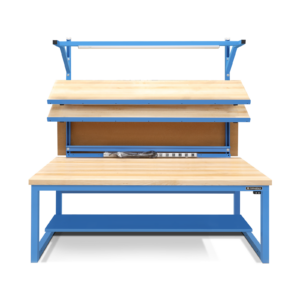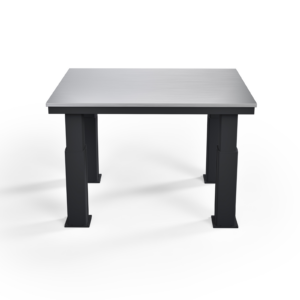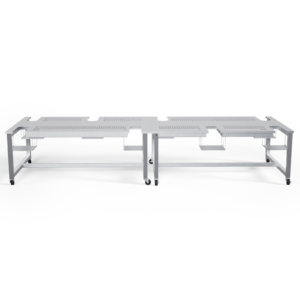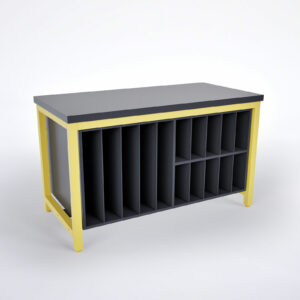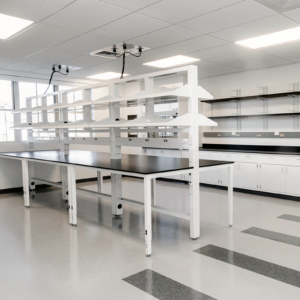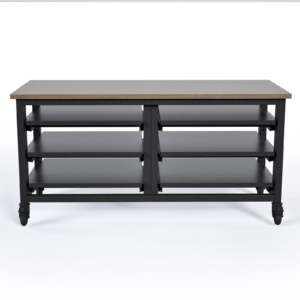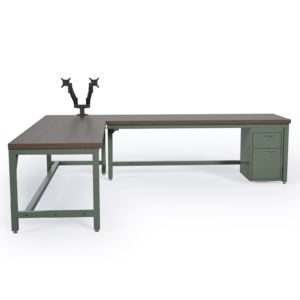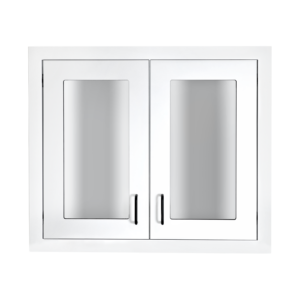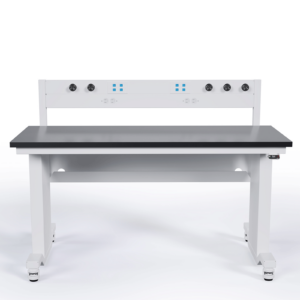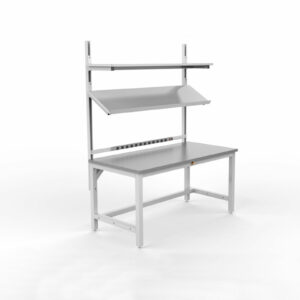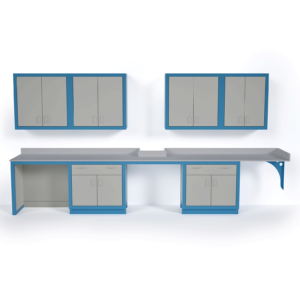 A message from Jeff Turk, Formaspace CEO:
A message from Jeff Turk, Formaspace CEO:
In this time of rapid change, I wanted to let you know what Formaspace is doing to serve our community and our world in response to the COVID-19 crisis.
On March 22nd, General Motors asked Formaspace to put the resources of the entire company toward one goal: helping General Motors stand up a new factory in Kokomo, Indiana to mass produce new ventilators, as part of its partnership with Ventec Life Systems.
GM asked us to do what we do best: build large quantities of industrial-strength workbenches for use on their new assembly lines. The first batch of new ESD workbenches shipped on March 25, 2020, only three days after formalizing our relationship with GM. We sent truckloads of workbenches each day, 7 days a week, until the facility was completed. Only three weeks later, GM’s production line is delivering life-saving ventilators to hospitals across our country. You can read our press release about our efforts here, GM’s press release about the beginning of mass production here, and a press briefing from the President of the United States about our efforts, featuring our benches in a video of our installation efforts.
We hope the dozens of Formaspace clients whose orders were delayed as a result my decision will understand that I made the decision to push your orders in order to make a direct contribution to saving lives in a time of crisis.
We did not make this decision lightly, but at the same time, we felt it was the right decision to make, not only as a company, but as a community and as Americans. If you are one of our clients who is impacted by this decision, I will be happy to speak with you personally.
As a result of our COVID response efforts in relation to GM and several other clients, we have been asked to help with a number of other live-saving efforts. Formaspace is prioritizing orders that directly affect healthcare outcomes at this time. However, we have added a second shift to our production facility to support our regular business, and we now have more capacity than ever to support our full range of product needs.
I realize many of you may have questions about how we are maintaining sanitary hygiene processes at our production facility here in Austin, Texas.
I want to assure you that our people are practicing social distancing, wearing masks and gloves, and otherwise following all CDC and WHO guidance. We are not traveling at this time. Our office staff is working entirely on a remote basis. Our facilities are cleaned multiple times a day, and your products are cleaned with CDC-recommended cleaning products prior to being loaded on trucks. Vendors drop products off in designated areas separate from our staff, and we are loading and signing off trailers in such a way as to minimize contact between ourselves and drivers. At this time, we have been fortunate that no one who works for Formaspace has contracted COVID-19. There is no need to quarantine our products upon arrival.
If you have any questions or for media inquiries, please reach out to me directly at 512.669.8931.
My best to you and stay safe,
— Jeff Turk, CEO
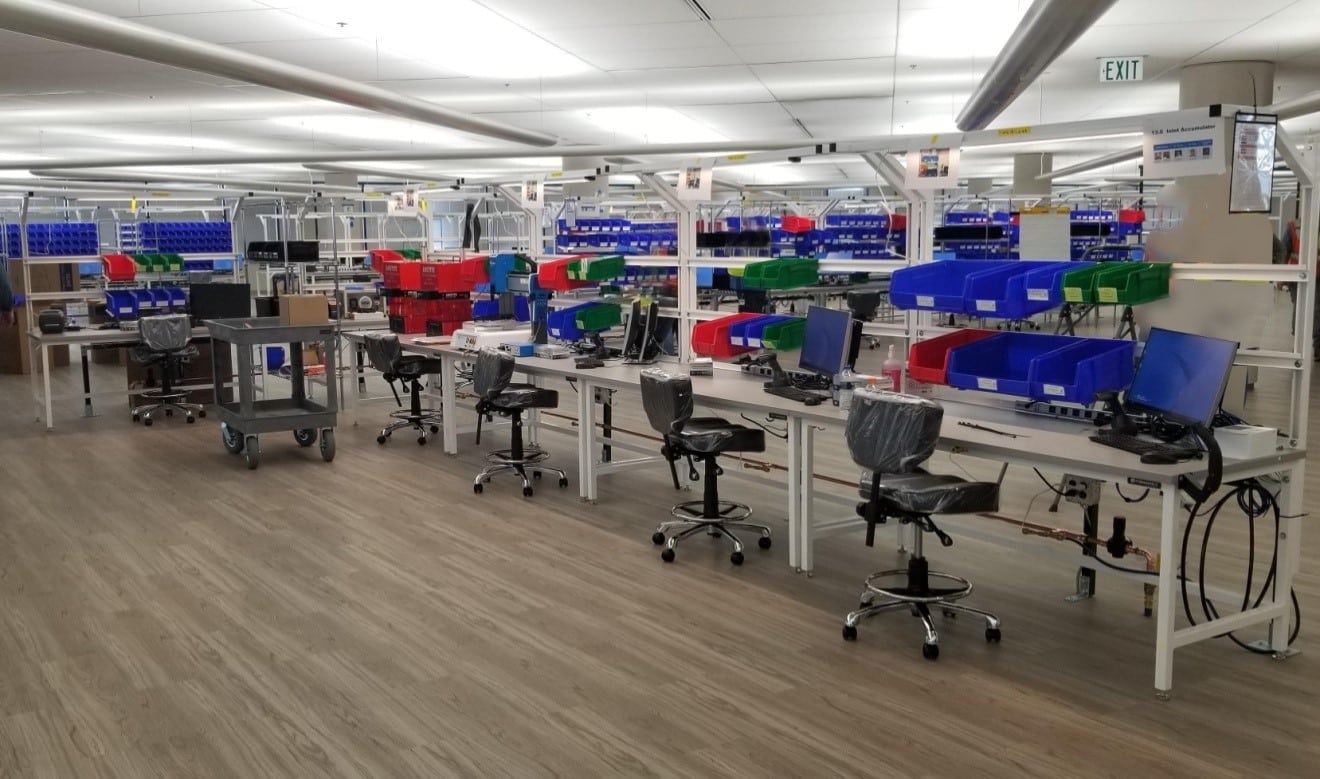
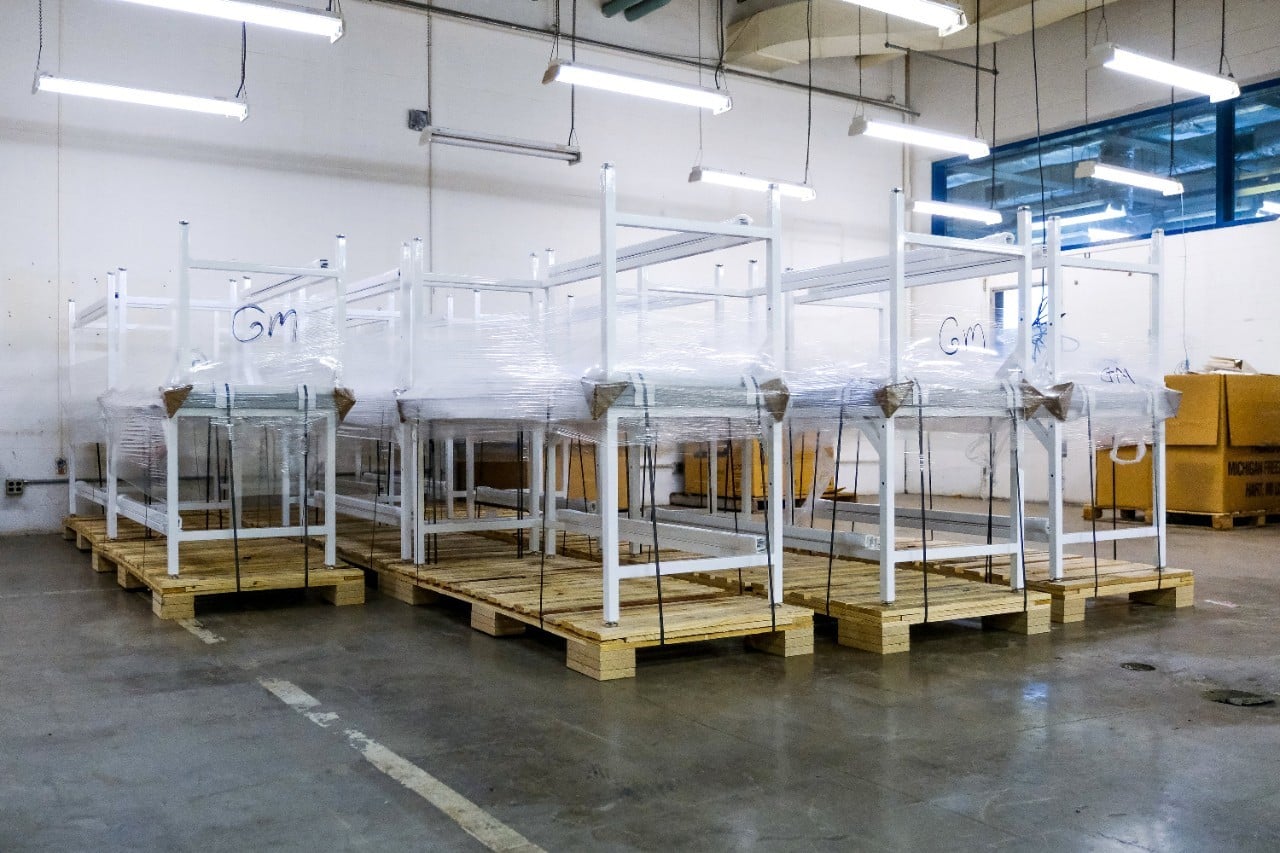
A Message About Worker Safety from Mike Bush, Formaspace Production Manager
To provide you with specific answers to your detailed questions about industrial hygiene at Formaspace, we’d like to introduce you to Mike Bush, Formaspace’s Production Manager.
Mike started his career as a Manufacturing Engineering with McDonnell Douglas Corporation. Before joining Formaspace, Mike was the Regional Managing Director at Schlemmer USA, and before, Mike was the VP of Operations at Hilite International. Mike holds a Sigma Six Green Belt and has taken part in three large-scale ERP implementations over the course of his career.
Sanitary Hygiene on the Job
Q: How do you maintain sanitary conditions at your facility?
Mike Bush, Formaspace Production Manager:
Thank you for the opportunity to address some of the specific concerns that our customers may have. I hope to cover as many topics as I can. If you have additional questions, please feel free to reach out.
First of all, we clean all the contact surfaces throughout the Formaspace production facility multiple times per day using CDC-recommended cleaning products.
The first cleaning occurs very early in the morning prior to the beginning of the production shift. Our maintenance team disinfects all contact surfaces using a bleach concentrate, paying special attention to all door handles and door fronts, all bathroom facilities (including sinks, faucets, toilets, etc.), all break room facilities, including cabinets, sinks, microwaves, tables, chairs, and anything with a pushbutton.
This maintenance team comes around again in the early afternoon (around 2 p.m.) for another round of deep cleaning of all these same contact surfaces.
Finally, after the work shift is completed, there is an additional application of bleach solution applied to primary contact surfaces… it’s not wiped down but rather allowed to dry in place during the overnight hours.
We are also busy changing the configuration of door openings to reduce the number of contact surfaces throughout our facility. For example, we’re adding kick plates to doors that push “in” and we’re adding foot pulls at the base of doors that open “out” — allowing all of them to be opened using your feet without having to make direct contact with your hands.
Social Distancing at Work
Q: How do you establish and maintain proper social distancing on the job?
MB: The idea of practicing social distancing is new to all of us, so we are constantly reminding one another to maintain a distance of at least 6 feet (if not more) from one another.
Fortunately, here at Formaspace, we have a very generous amount of factory “real estate,” and so we have found it relatively easy to make a few simple changes to ensure that sufficient social distance is maintained throughout the work shift.
One change that we introduced is to provide a separate workbench for each of our production employees, whereas previously, employees often worked in pairs at large shared workbenches.
Fortunately for us, most of the other job tasks are (by their nature) already separated some distance apart from one another; these include the powder coating stations, the welding stations, as well as the individual woodshop and cabinetry production stations.
One task that requires special attention is the handing of finished furniture products during the shipping process. Sometimes it’s necessary to have workers lift these products and flip them over on their back to secure them onto pallet skids that are used for shipping them to customers. Here, workers need to be careful to maintain a 6-foot distance.
Production Meetings
Q: How do you conduct production planning meetings?
MB: Under normal circumstances, we always conduct a daily production meeting at the beginning of each work shift.
However, due to the coronavirus outbreak, these production meetings are now suspended. Instead, production managers go from work center to work center to update our employees individually (while maintaining an appropriate 6’ social distance) to brief them on the daily tasks ahead.
This way, we can eliminate the need to gather in large groups.
We have also suspended all of our conference room meetings.
If we do need to conduct an all-hands production meeting, we are fortunate enough to have a large area in the rear of the production facility where people can spread out to maintain a 6-foot separation.
Another option during the nice springtime weather here in Austin is to meet outside in the adjoining parking lot by the shipping docks, which allows us to spread out even further.
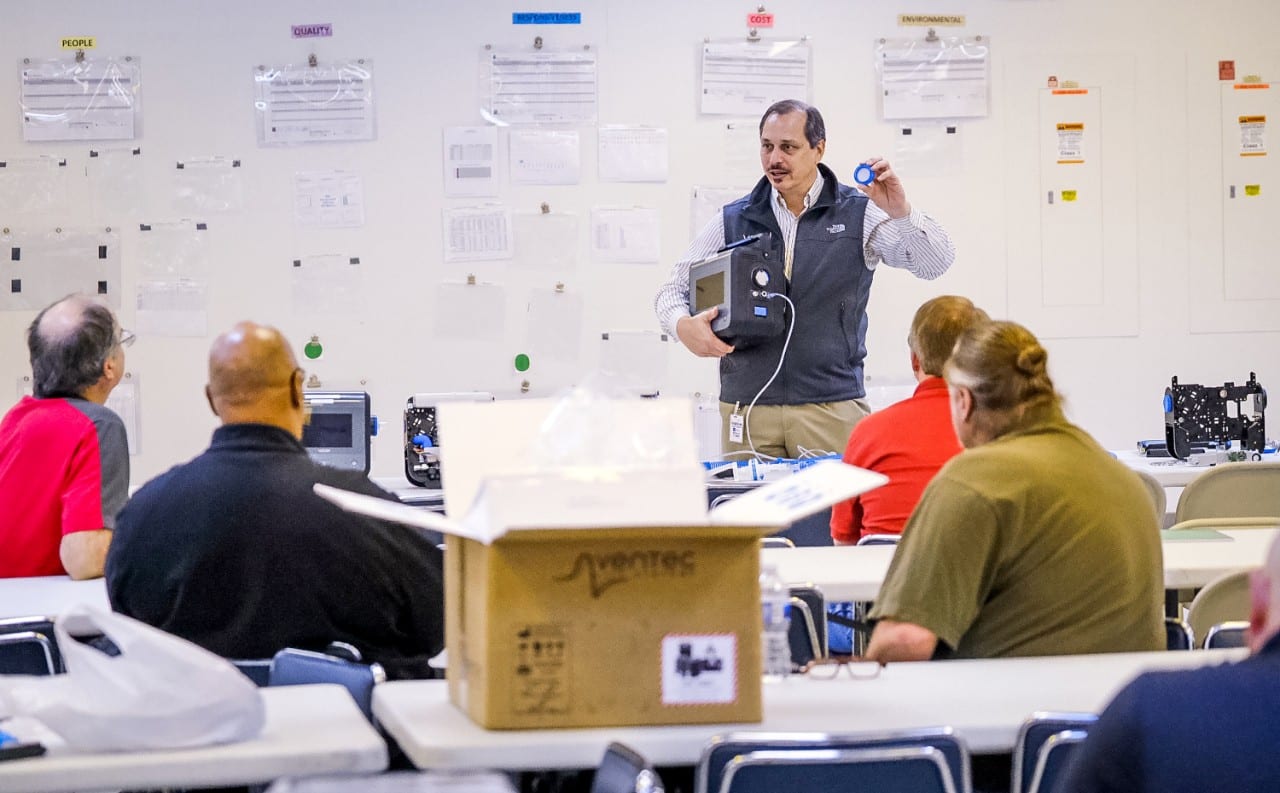
PPE (Personal Protective Equipment)
Q: What kind of masks and other PPE do you use on the job?
MB: Worker safety always comes first at Formaspace.
As is typical with all manufacturing companies where workers are directly involved in processes involving material handling and tool operations (which, in our case, includes woodworking, welding, and surface finishing), we provide a wide range of personal protective equipment (PPE) for each worker.
For example, given the nature of work involved, most of our employees were already wearing some type of hand protection as part of normal operating procedures. Now, with the threat of coronavirus, it’s been a straightforward change for all employees to wear gloves all the time as needed.
The situation is similar for eye protection, face shields, and respiratory masks.
Woodworkers, metalworkers, welders, and surface finishers have always worn this type of protection. Fortunately, in the course of doing business, we have been able to rely on our pre-existing stock of PPE supplies to continue with our normal operations as well as provide our other workers on the factory floor with masks, gloves, etc. as well.
We are also encouraging vigorous hand washing throughout the day. We’ve increased the number of soap dispensers and wash stations, and we’ve also provided dispensers of hand sanitizer gel (with a high percentage of alcohol) throughout the entire production area.
On-Site Visitors
Q: How do you handle vendor or non-production personnel visits?
MB: This is an easy question to answer.
We now have a very straightforward policy in place: we no longer allow any visitors to enter the production facility.
This temporary ban includes all external vendors, dealers, or clients, as well as any Formaspace staff members who are not employed on the production line.
The idea behind this thinking is to keep the production team isolated and safe from contact with anyone who might have come in contact with the coronavirus pathogen.
In lieu of on-site visits, we have stepped up the use of photography and video to communicate with our vendors, dealers, and clients — as well as other Formaspace office staff members ‑ about what is happening with particular project milestones, final deliveries, etc.
Materials Handling + Shipping and Receiving
Q: What steps do you need to follow for safe shipping and receiving?
MB: This is closely related to the previous question about visitors to the production facility.
For shipping and receiving, we have created a new protocol with our vendors and delivery company personnel to reduce the risk of exposure to either party.
We’ve agreed that they leave all materials or pickup finished products at the shipping dock, essentially, as a self-service basis. We have also set up a special shelf where they know to either leave or pick up the relevant shipping paperwork.
This way, we reduce contact with drivers and delivery agents as much as possible.
It’s understood that the coronavirus has a limited shelf life on materials, such as plastic, wood, or metals — so we can keep newly arrived materials or items that are ready be shipped in a holding pattern at the shipping dock for a period of time to let any traces of the virus die out naturally.
Then we follow our normal material handling procedures, which, as it so happens, also provide a secondary opportunity to remove any traces of coronavirus.
For example, all wood services are wiped down with mineral spirits to ensure that they are clean and free of dust, while metal materials used in furniture construction are degreased with a cleanser to make sure they’re clean for cutting and welding operations.
Similar procedures are repeated when preparing the finished furniture products. We clean all furniture surfaces using CDC-recommended cleaning products during the packing process prior to loading onto trucks for shipment to your facility.
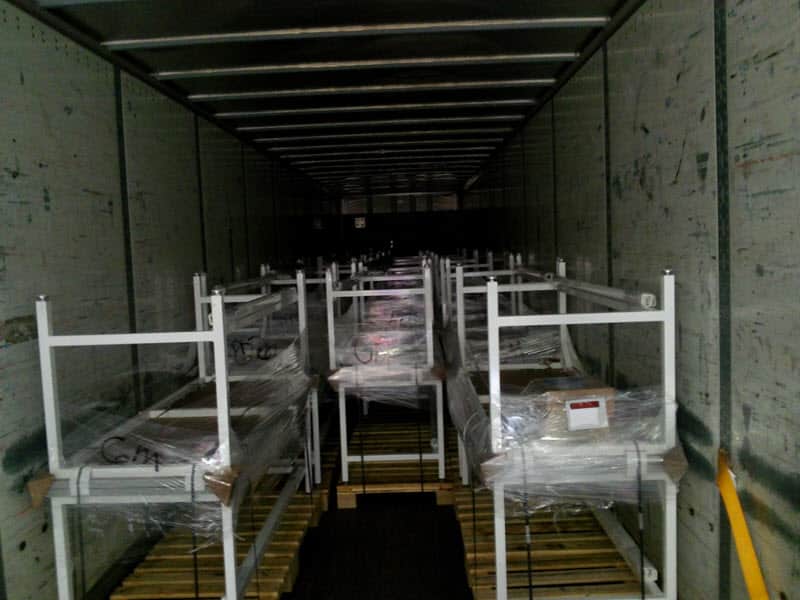
Employee Break Time and Meals
Q: How do you handle break times? What protocols do you use for the kitchen mess or cafeteria?
MB: To minimize social contact between employees working on the production floor, we are now staggering the break times throughout the day to limit the number of personnel using the break room to a maximum of six people (or fewer) at one time.
In many cases, our workers are electing to go outside and take their breaks in their cars parked outside in the adjacent parking lots; this also allows them to eat a packed lunch in their vehicles rather than eat or drink in front of others in the kitchen mess.
COVID-19 Monitoring
Q: What’s the process for making sure employees that are feeling “off” stay at home?
MB: We have a very tight community of production workers here at Formaspace. Everyone knows that they are very dependent on one another for our mutual success.
If anyone feels that they might be getting sick, it’s well understood by everyone that it’s crucial that they return home immediately (and stay home) until the threat of any potentially developing symptoms either manifest themselves or they get the all-clear to return to work.
No one here wants to jeopardize the health of any of our friends and colleagues.
Fortunately, over the years, Formaspace management has made it very clear that presentism (e.g. coming to work when potentially ill) is never a good idea — especially not now — and that our company benefits, such as fully paid sick time, are meant to be used even if there is just a suggestion of possible exposure to the virus.
Of course, we also have diagnostic equipment on hand, such as remote-sensing temperature meters, to make a quick check if anyone feels like they might be coming down with a fever or have other symptoms that might suggest they need to return home and isolate themselves immediately.
On the Job Safety
Q: How do you keep employees safe on the job?
MB: As we mentioned earlier, in response to the previous question, worker safety comes first here at Formaspace.
That said, we are asking our workers to be extra careful during this time. It’s more important than ever to follow all safety guidelines scrupulously to avoid any potential accidents and injuries.
We recognize that the health care system is under stress taking care of those suffering from coronavirus-related conditions, and we don’t need to add to the burden of the local health care system.
Employees also understand that the idea of visiting the emergency room or doctor is difficult right now and could put them at additional potential risk for exposure to the coronavirus.
We’ve decided it was also prudent to increase the number of available first aid kits throughout the production area, and we’ve also recently conducted on-site CPR training (prior to the coronavirus outbreak). Our personnel has also been trained on deploying the defibrillator machine we have on-site that’s meant to be used in the case of a suspected heart attack.
We’re all in this together, and Formaspace is here to help.
We’d like to thank Jeff Turk, Formaspace CEO, and Mike Bush, Formaspace Production Manager, for taking time during this busy period to update our audience on the details of this major effort to help GM commence ventilator production in the Kokomo, Indiana facility.
And we would like you to know that our team is ready to assist you with your projects as well, whether you are constructing new facilities or making changes to your existing operations.
Formaspace builds custom industrial furniture here at our Austin, Texas factory headquarters for all kinds of applications, including manufacturing facilities, material handling and distribution centers, pharma and health care laboratories, or primary, secondary, and university educational facilities.
Take the next step. Contact your Formaspace Design Consultant today.



